- Home
- Cary Fagan
The Old World and Other Stories Page 5
The Old World and Other Stories Read online
Page 5
“Did you make a pass at her?” I hissed at my brother.
“All I did was ask her for dinner. She said no so I asked if she had a boyfriend but she doesn’t. I just pressed a little, that’s all. She said I was being mean and then she stormed out. I don’t know what the problem was.”
The rest of the party was a washout for me. On Monday I saw Rosie at work. When we sat down for lunch she looked sad. She said my brother was sweet and reminded her of me but that going out with him would only end up with one or both of them getting hurt. I tried to convince her that she was wrong but she refused to listen. After that there was a strain in our friendship. Some days Rosie said she couldn’t have lunch with me. We skipped two whole weekends seeing each other.
It was about then that I noticed that Mr. Constantine was showing a lot of attention to Rosie. He would stop in the dress department and ask her about this and that. He’d make a joke and Rosie would pretend to laugh. Mr. Constantine was known to bother the salesgirls; I had been warned from the start not to be caught alone in a room with him. Was that why Rosie didn’t want to see my brother? Could she possibly be hoping to land Mr. Constantine? But a man like him wanted only one thing. Besides, I could see she didn’t like him and that whenever he came by she looked nervous and busied herself straightening the racks. Once I even saw her shaking her head while he pressed a hand to her shoulder.
I wanted to help Rosie but didn’t know how. If I complained, the management would never believe a salesgirl over Mr. Constantine. The only way to get free was to quit, and then there was the risk that he wouldn’t give her a letter of reference. All she could do was endure.
One night my brother came over. He surprised me by saying that Rosie had relented and that they’d had dinner at Chez Michel. Not just once but several times. He said they had taken evening walks and held hands and once had stopped under a tree and kissed. He said that kiss was the greatest moment of his life, that it transported him — that was his word.
I was stunned that Rosie hadn’t said anything to me. The next day I insisted that she come for lunch with me and I confronted her. She started crying. “I don’t want him to get hurt. I don’t want either of us to.” I tried to tell her it didn’t have to end that way but she said that I didn’t know what the world was really like. I don’t know if talking to me caused her to act, but the next time she saw my brother she told him that it was over and that she could never see him again. That night my brother telephoned and I could hear him alternate between anger and tears.
No matter what, I decided, I would talk to Rosie again. When I got to work in the morning she was already putting new merchandise on display and she avoided looking at me. I didn’t care — I would ambush her at lunch if necessary, would tell her that what she was doing wasn’t fair to her or my brother. I found it very hard to concentrate but business was slow anyway and a lot of the time I was alone in my department. Needing a drink from the water fountain, I walked across the floor, all the while looking in vain for Rosie. Then I saw Mr. Constantine walk swiftly away from the staff area. Something made me hurry back there and, hearing a sound like a whimper, I pulled aside the curtain to the small employee changing area and saw Rosie. She was crying and her makeup had run but what shocked me was seeing her dress on the floor. Rosie stood there in her bra and panties and I could see that she was a man. A man dressed as a woman. I turned around and walked straight back to my own department.
Rosie didn’t return to dresses. In fact, I never saw her — or him — again. The next day all the girls were talking about how she had suddenly quit, or been fired, nobody could agree. I ought to have tried to phone her right away but I didn’t. I waited almost a week and when I finally dialled her number there was no answer.
I had lost my best friend. It almost felt as if she had died and I was in mourning. It wasn’t my intention to tell anyone the truth about Rosie, least of all my brother. But a couple of months later he was still brooding about her, refusing to see other women, insisting that there was no longer a possibility of happiness for him. He came over to my apartment and quickly downed two shots of bourbon. I knew that I had to shake him out of it, so I told him the truth. I told him that Rosie wasn’t a woman but a man, with a man’s parts and everything.
My brother stared into his glass. “Did you hear me?” I demanded. “Did you hear what I actually said?”
“I love her,” he said. “I’ll never love anybody else.”
He already knew. I put my arms around my brother and held him tight. And I thought that it was terrible, just terrible that we had lost her.
JEALOUSY
The news that Uncle Jess was getting married sure took us by surprise. Everyone had said that he was a perennial bachelor, which, as a kid, I didn’t understand was shorthand for homosexual. Until then he’d survived by taking odd jobs here and there, helping somebody out or acting as a middleman for certain deals that involved a carload of cigarettes or radios that had somehow become “lost.” He also borrowed money from just about everyone, never a large sum, and he would become offended if a person suggested he didn’t intend to pay it back.
Nobody ever stayed mad at Uncle Jess; he was always forgiven and welcomed again. People liked to buy him a pint or a meal, or hand him a cigar. He was good company, always with a story that he swore was true, or else a series of jokes “not intended for the ladies” that he would proceed to tell in front of everyone. In his inner pocket he kept two or three funny postcards — a woman wearing only stockings riding a bicycle backwards, two kangaroos in a boxing ring. “That Jess, he’s about good for nothing,” people would say, but they’d always be smiling.
He was my mother’s brother, the youngest of four and the only boy — which explained why he’d been so spoiled growing up. She was the next youngest and so the closest to him, the one he would go to when in trouble, standing at the door with his hat in his hands saying, “I’ve really done it this time, sis.” It was also to us that he brought his new bride. No warning at all, he just showed up with a woman twelve years older and six inches taller on his arm, a horsey woman with a lot of makeup and a fur collar and jangly earrings. Over dinner we tried to follow the story of how they met — a disputed taxi cab, a cruise ship, several jazz musicians, and a cop — summed up by Jess as “a case of mistaken identity.” When exactly had they gotten married, my mother wanted to know. Three days before, at city hall. She held out her hand to show off the ring he had picked out for her to buy.
Pauline Manning was her name, and she was a widow. He had already moved into her flat and a couple of weeks later used her money to buy a smoke shop. Really it wasn’t much more than a newsstand with walls and a door but it had a fairly brisk trade. He talked about his pride at being a shop owner while Pauline looked at him with dovey eyes. He told me that any time I came by he had a stick of gum waiting. I thought the shop sounded great but my parents looked grim. I knew what they were thinking: What would happen when the bloom was off the rose, when Pauline began to see Jess for what he was?
But she never did. Or she did but still loved him. “My good for nothing,” she called Uncle Jess with affection, or else “my little man,” even after he began to lose interest in the smoke shop and would close it up for hours at a time so that he could go for a drink, or to the track, or to the the hair salon where Pauline worked so he could surprise her with a handful of daisies pulled from somebody’s garden. Quite possibly she never expected him to make a living and the smoke shop was just to keep him out of trouble.
Uncle Jess had always come to us for a meal once a week and didn’t see any reason to end the tradition, so now we got Pauline, too. One night my mother asked point blank whether they intended to have children because, if so, time was surely running out. “Oh,” Pauline said, “we’re seriously thinking about a little one, aren’t we, my little man?” and laughed her horsey laugh.
What they were thinking turned out to be Lucille
. A tiny puppy, she fit in Uncle Jess’s cupped hands. Of course I was thrilled when they brought her over, but my parents just shook their heads, realizing that my uncle had married a woman who was no more mature than he was. The dog was supposed to be Pauline’s but it soon became clear that the puppy had attached itself to Uncle Jess. And since she worked most days at the hairdresser’s, he was the one who looked after the dog.
He took Lucille everywhere. She slept by his feet when he manned the smoke shop, and waited outside the saloon door when he went for a drink. Uncle Jess cooed to her: “Who’s my goody girl, who’s my sweetheart? How about a kiss, then?” He let the dog lick him on the mouth, which made my mother say she wanted to spit.
I think it was a full year before I began to detect something wrong, a dark little cloud over Pauline. She started making comments about how Jess spoiled Lucille with too many treats, about how he never talked to her so nicely. “Now, don’t say that,” Uncle Jess remonstrated. “You’ll hurt Lucille’s feelings.”
“Jealous,” my father said one night after they’d gone. “The woman is jealous of a dog.”
“It’s mad, I know, but I can’t completely blame her,” my mother said. “He does pay a lot of attention to that mutt.”
“It’s not a mutt,” I butted in. “Uncle Jess says it’s a purebred.”
“Your uncle believes whatever he wants. And you’re not supposed to be listening.”
But nothing serious happened. Pauline worked, Uncle Jess strolled down the street with Lucille trotting at his heel, every so often the smoke shop opened for business. I grew to like my Aunt Pauline very much. She was clever and had a tart sense of humour. She wore dresses with big, bold patterns, the sort of thing my mother wouldn’t be caught dead in, that she said were picked out specially for her by a saleslady at the department store. She asked me about my friends, my interests, and actually listened to the answers.
I didn’t believe it at first when my mother and father started whispering about her being sick. She seemed strong as, well, a horse. But within six months Aunt Pauline was bedridden.
Now it was us that had to visit her. She said that her mother and sister had died just the same way and that she had always been fated for an early end. Uncle Jess was very attentive, fetching tea, making soup, brushing her hair. “I couldn’t ask for a better husband, or even a better nurse,” she said, a tear in her eye. The last weeks were agony and finally she had to go into the hospital, where she died even as Uncle Jess held her hand.
Aunt Pauline was buried in the cemetery beside her first husband, for they had bought the plot years before, but she had reserved the other side for Uncle Jess. “I don’t mind. She was more than enough woman for two men,” Jess said, laying flowers on the fresh earth. “I’ll join her, but not too soon I hope.”
His sadness was genuine; it was weeks before he smiled at our dinner table. But slowly Uncle Jess became his old self again. He opened the smoke shop for a couple of hours in the morning, and again as people were coming out of their offices. Otherwise he was telling stories at the saloon, or shooting pool, or standing on a street corner with other men, saying something under his breath about a woman crossing the road that would make them all laugh. He thought I was old enough now to look through the postcards in his pocket rather than just peeking at them: a naked man holding a baseball bat at an upward angle from his loins, a crowd of midgets in a rowboat.
If possible, he spoiled Lucille even more than before. During dinner he kept her on his lap. My mother reported that the dog now slept on the bed at night, her head on the pillow. It occurred to me that, although he had been fond of Aunt Pauline, Lucille was the love of his life.
One night he said to the dog, “What’s a little man going to do?” and gave her a tidbit from his plate. Later when he left our house, I watched through the window as he walked up the sidewalk, Lucille keeping up beside him. At one point she got in front of him and he angrily shoved her away with his foot. Then he stopped, as if shocked at what he’d done, and picked her up. He held her in his arms and buried his face in her fur. That was when I realized I was wrong, that even Uncle Jess knew that a dog was just a dog.
WHO I’VE COME FOR
Boy enters. He looks at the audience and waves.
BOY Hi, kids!
He burps. Children in the audience laugh.
BOY Well, excuse me!
He tries to do a headstand and falls over. The kids guffaw.
BOY Hey, don’t laugh! I’m just kidding, it is a little funny. So who do you think will visit the library today? Would you like to see Old Macdonald, who can tell us more about his farm?
The children shout: “No, no!”
BOY Oh dear. All right then, how about Miss Maple the flower lady?
The children boo.
BOY Not her, either? You’re not making things easy. I know! Let’s have Slappy the Clown! He’s so much fun . . .
The children boo louder, cry: “You stink!”
BOY Now come on, kids. A puppet’s got to make a living, you know. Don’t be so unreasonable. Let’s bring somebody out. I’m sure we’ll have a swell time.
Boy walks to one side of the stage and peers past the curtain.
BOY Hello? Anybody there? Yoo-hoo!
He looks into the wing on one side. Nothing happens.
(Voices behind the curtain:
— Come on! Don’t leave me hanging.
— Fuck off.
— Bring on the dog.
— The dog’s lost an ear.
— Something else, then. Hurry up!)
BOY Hello? Hello? Anyone there?
Death enters from the other side. He walks to centre stage, turns to the audience, and reaches out a hand. His skull rises from his body and hovers in the air. The children cheer. Hearing the reaction, Boy turns to the audience.
BOY Hey, what’s all the noise about? Did you see something?
Boy looks around but not in the direction of Death. He sneezes loudly. Death’s two bony arms float up into the air. The kids stamp their feet.
BOY Gee, all I did was sneeze.
Death brings his head and arms back to his body. He walks slowly over to Boy and taps on his shoulder. Boy turns around and jumps.
BOY Goodness! Where did you come from?
(Voice behind the curtain:
— What did you bring that out for? Are you drunk?)
Death shrugs.
BOY Funny, I don’t think I recognize you. Are you from around here?
DEATH Not exactly.
BOY Did you just move in?
DEATH Oh, I never stay anywhere long.
BOY You’re awfully tall.
DEATH Not for my age.
BOY You want to play hide and seek with me?
DEATH It’s too easy for me to hide. Besides, I don’t like games.
BOY Do you do any tricks? You know, like juggling or riding a unicycle.
DEATH Nothing like that.
BOY Give me a break here. I’ve got to entertain the kids somehow.
DEATH I wouldn’t know anything about that. I’ve got a job of my own.
BOY What’s that? I’m sure it isn’t as a food tester by the look of you, eh, kids?
DEATH I just do one thing. I do it over and over again, many times a day or night.
BOY Gee, that sounds tiring. You still haven’t told me what it is.
DEATH I come for people.
BOY You mean, to take them somewhere?
DEATH That’s right.
Boy looks at audience.
BOY Now, kids, you must remember never to go with a stranger.
DEATH That’s very good advice. But you see, if it were my time to come for you then you would recog
nize me. You’d consider me a friend.
BOY Well, I don’t recognize you so that means you haven’t come for me, right?
DEATH You are correct.
BOY I’m smart for my age.
DEATH Below average.
BOY So where were you before you came here?
DEATH A hospital. I spend a lot of time in hospitals.
BOY Oh, we don’t like them, do we, kids?
DEATH I had to take a very nice lady. Took her away from a man and a small dog sitting beside her.
BOY A dog in a hospital! That’s funny, isn’t it, kids! Did the dog run around and grab all the bandages and knock a fat orderly down the stairs?
DEATH No.
BOY So who are you here for? Old Macdonald the farmer?
DEATH Not for him.
BOY How about Slappy the Clown? He’s actually pretty annoying, isn’t he, kids? You should take him.
DEATH Slappy is going to live a very long time.
BOY It must be Miss Maple the flower lady.
DEATH She hasn’t been feeling well for some time.
BOY But I bet she’ll be glad to be going, kids, won’t she?
DEATH Everyone is different. First, just recognizing me will be a bit of a shock. Then, in the excitement, she might remember all that’s good about life, the things she usually takes for granted. She might get quite upset. She might cry.
BOY A grown-up, cry? Isn’t that a tickler, kids!
DEATH But then she’ll calm down. She’ll take the measure of things and understand. She might even make a joke; some people do. What took you so long? Sorry, I left my soul in my other suit.

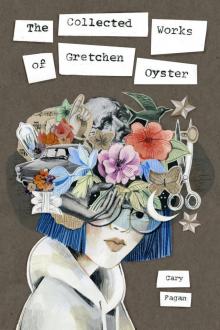 The Collected Works of Gretchen Oyster
The Collected Works of Gretchen Oyster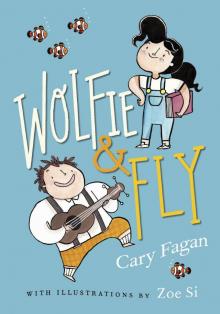 Wolfie and Fly
Wolfie and Fly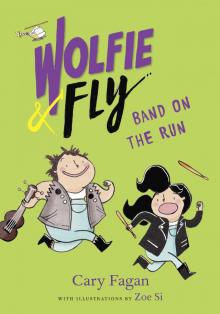 Band on the Run
Band on the Run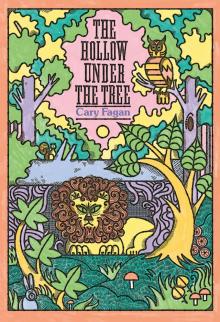 The Hollow under the Tree
The Hollow under the Tree Jacob Two-Two on the High Seas
Jacob Two-Two on the High Seas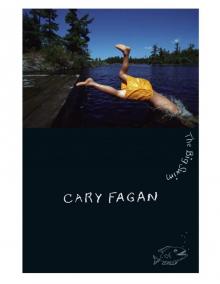 The Big Swim
The Big Swim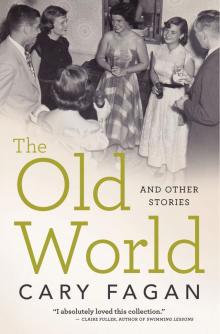 The Old World and Other Stories
The Old World and Other Stories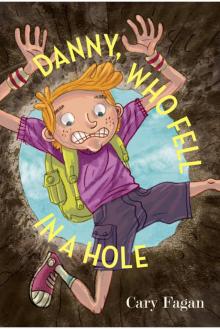 Danny, Who Fell in a Hole
Danny, Who Fell in a Hole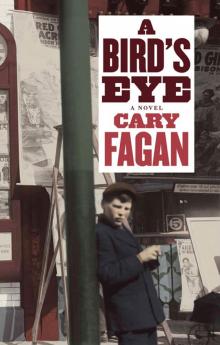 A Bird's Eye
A Bird's Eye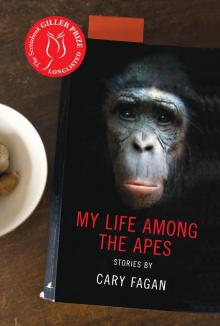 My Life Among the Apes
My Life Among the Apes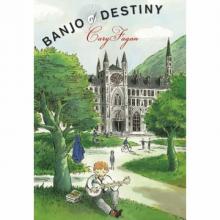 Banjo of Destiny
Banjo of Destiny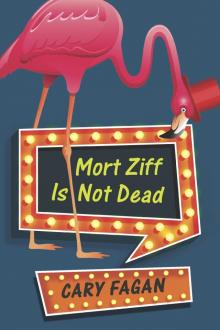 Mort Ziff Is Not Dead
Mort Ziff Is Not Dead